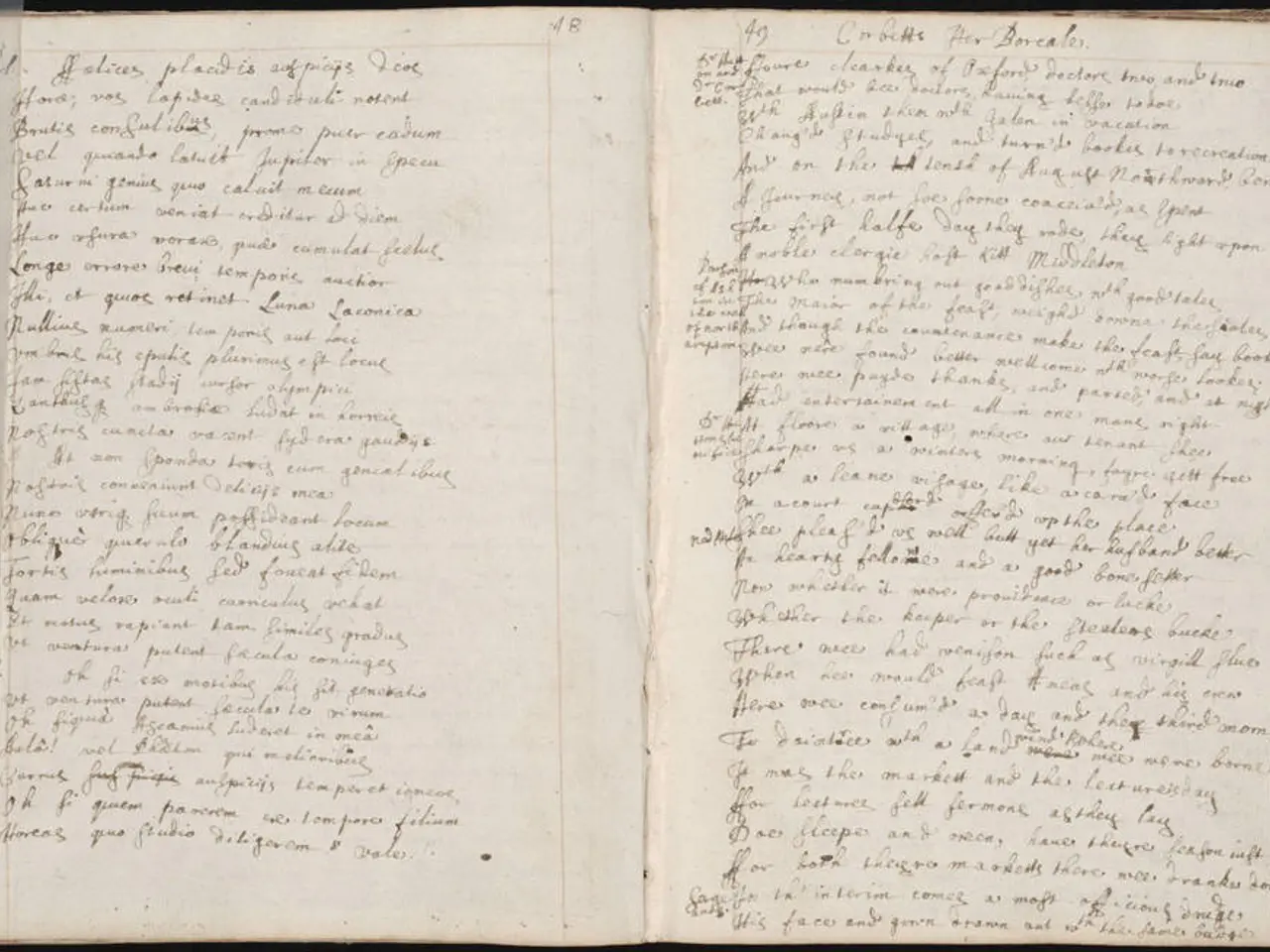Dive into Journaling: Navigating the Initial Steps!
In the quest for self-discovery and personal growth, journaling emerges as a potent tool. This article offers insights into the art of journaling and provides practical tips for beginners.
Journaling is a personal sanctuary, serving as an outlet, sounding board, and space for creativity and reflection. It can be as simple or complex as you choose, making it accessible to everyone. The author, a seasoned journaler, shares their own formula: writing the date, day, and time, noting where they are, describing the weather, writing about their physical feelings, and reflecting on their thoughts, feelings, or emotions.
Starting a journaling practice might seem intimidating, but it's essential to remember that there's no right or wrong way to journal. Begin by choosing what types of entries resonate with you—gratitude lists, daily reflections, goals, or dreams—and don't hesitate to experiment with different styles like writing, drawing, or mind maps. Overcome the intimidation of the blank first page by writing an introduction about yourself, your reasons for journaling, or simply leave it blank to fill later.
Using journaling prompts can inspire your entries and uncover deeper thoughts. Examples include "things I am grateful for today" or "high point and low point of the day," which help bring out unconscious concerns and make the habit engaging. Keeping your journal flexible and personal—mixing styles or themes and even incorporating fun elements like stickers, photos, or drawings—can enhance your motivation and enjoyment.
To maintain your journal effectively, set achievable goals for your journaling, such as improved self-awareness or tracking progress on personal objectives. Regularly review and update your goals by writing tangible statements outlining why you want them, obstacles you might face, and timelines, which fosters accountability. Organise your journal with tools like indexed pages or themed layouts to keep it interesting and easily navigable.
Consistency matters more than style or length of entries. Make journaling a habit by setting a regular time to write, whether daily or weekly. Don't stress over perfection; the beauty of a journal lies in its private and personal nature.
As you embark on this journey, remember to be kind to yourself. Start small and celebrate journaling milestones to build a sense of accomplishment. Journaling sessions can vary in length, with some going beyond the set time and others being brief. The key is to make it a regular part of your routine, tailored to your lifestyle and interests.
Journaling has been a lifesaver during big moments in the author's life, helping them process emotions and stay grounded. It has brought them clarity, perspective, and peace of mind. The author started journaling over 10 years ago and finds it freeing, rewarding, and a cornerstone of their life.
In essence, start simply, use prompts and personal themes to keep it engaging, set clear journaling goals, and develop a consistent routine tailored to your lifestyle and interests. Embrace the power of personal journaling and watch as it transforms your life.
Journaling can extend beyond personal growth, serving as a valuable asset for lifestyle enhancement, home-and-garden organization, and education-and-self-development. For instance, maintaining a journal dedicated to home improvement projects can help track progress, identify areas for improvement, and set achievable goals. Similarly, a lifestyle journal can serve as a platform for further educational exploration, containing notes, ideas, or reflections on various topics, acting as a resource for ongoing learning and self-development.




